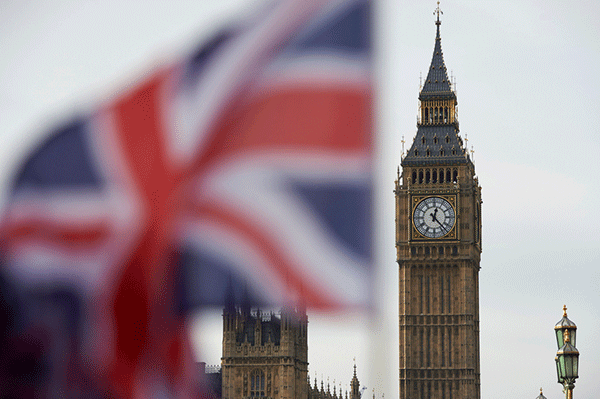UK needs to face up to new realities
 |
|
A Union flag flies in the wind in front of the Big Ben clock face and the Elizabeth Tower at the Houses of Parliament in central London on November 3, 2016. [Photo/VCG] |
 |
|
James Skinner [Photo provided to chinadaily.com.cn] |
The British public was assured in the run up to the Brexit vote on June 23 that the government was planning for all possible outcomes, while it furiously campaigned for the remain side. After the result of the vote, it quickly became clear that there were no serious plans in the event of a vote to leave.
Political chaos quickly ensued with David Cameron resigning almost immediately despite saying he wouldn't, and the value of the pound plunging to its lowest level since 1985. The country was suddenly rudderless at a critical time.
It could easily be argued that the situation under the new prime minister, Theresa May, is scarcely any better with her vague and repetitive mantra that "Brexit means Brexit". Indeed, a memo leaked this month appeared to suggest the government still has no clear strategy for leaving the EU.
Why did Cameron's government allow itself to be taken by surprise like this? In the run-up to the vote the polls were always close and usually within the margin of error, even if the remain side was usually in the lead.
During the campaign, the leave side had significant support from businesses, celebrities and the media. The government seemed unable to comprehend the fact that the public might vote against it and hand victory to the leave campaign, and thus did not plan for what to do in the event of a loss, leaving the country embroiled in uncertainty after the result was announced.
This suggests a certain arrogance on the part of the government and much of the political elite in Britain, as well as providing a damning illustration of how out of touch they are with a large section of British public opinion. Now the country is in deeply uncertain waters as it navigates its new future outside the EU.
The election of Donald Trump has followed a similar course of events.
British politicians can be forgiven for not spotting the seriousness of Trump's bid for president, few did, but they may have made a serious error by debating whether to ban him from the UK during a parliamentary debate in January following an online petition. High-profile British political figures appeared especially zealous in calling Trump out for remarks he had made on everything, from Mexicans to Muslims, with Cameron calling his proposal for a Muslim ban "divisive, stupid, and wrong".
By the time Trump won the Republican nomination, a responsible British government should have put feelers out to Trump's campaign team to begin building a relationship with the candidate. It appears this work is only now beginning. Embarrassingly for Theresa May's government, the only senior British politician who has actually met Trump since he announced his bid for the presidency, is the leading Brexit campaigner Nigel Farage.
The shock defeat of Hillary Clinton is undoubtedly a huge setback for Britain. She knows Britain well, is respected by many British politicians, and holds dear many of the political beliefs of the British establishment. But what she would definitely have offered any British government was a continuation of the close security and intelligence-sharing relationship that is the cornerstone of Britain's foreign and defense policy.
However, Trump may prove to be of benefit to the UK with his promise that the country would not be "at the back of the queue" when it came to doing a post-EU trade deal with the US, but of course, the British government doesn't yet know because it has barely begun the work of building links with Trump's team. This is a lamentable failure for a country that has possibly the best diplomatic links with the US.
Both the Brexit vote and the election of Donald Trump have shaken the British establishment, and nobody in the government seems to have any idea about what to do next. The government needs to do some serious thinking about the reasons for the rejection of elites on both sides of the Atlantic, and needs to at least consider the potential benefits of a Trump presidency and the country's exit from the European Union. If the UK cannot adjust to new realities, then, coupled with the country's highly serious economic situation, Britain faces some very grave times indeed.
James Skinner is a contributing editor at China Daily with an MA in International Relations. He has a particular interest in British and American politics, as well as global security issues.
- Most Europeans still positive on EU despite Brexit
- UK business calls for exclusive visa system for post-Brexit London
- Brexit timetable won't be affected
- May lays groundwork for post-Brexit trade agreement
- Laughing matter: Brexit decision a godsend for comedians
- Brexit battle continues
- Court: Parliament must vote ahead of Brexit trigger




















